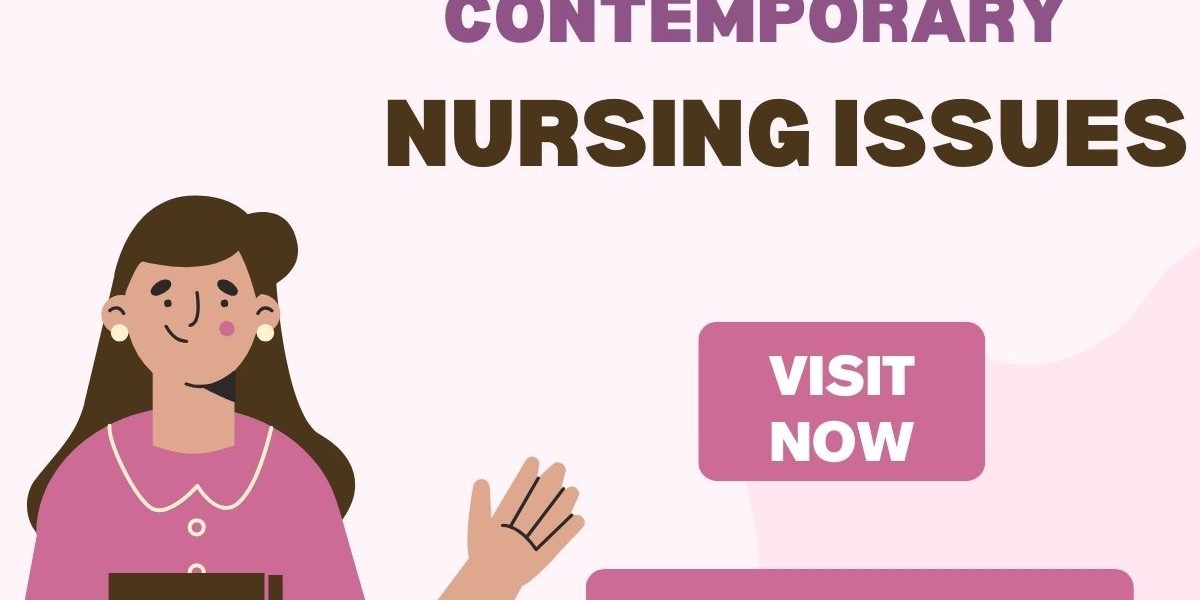Introduction
Nursing has always been a critical part of healthcare, but the role of nurses has undergone significant transformations over the years. As the healthcare landscape continues to evolve, so do the challenges that nurses face in delivering quality care. From the rise of technology in healthcare to the increasing demands for specialized care, contemporary nursing issues have shaped how nurses practice today. This blog post delves into the evolution of nursing and the contemporary challenges that nurses are tackling to ensure high-quality patient care.
The Historical Evolution of Nursing
Nursing as a profession has come a long way since its early days. Historically, nursing was seen as a domestic duty, often performed by women in the home. The role of nurses was largely informal, and they provided care based on common knowledge passed down through generations. However, as healthcare systems became more complex, the need for professional training and formal education for nurses grew.
- Early Beginnings: Nursing can trace its roots back to ancient civilizations, where women were often tasked with caring for the sick. In many cultures, women were expected to provide care for their families, and this role evolved into the formal practice of nursing.
- The Birth of Modern Nursing: The modern nursing profession began in the 19th century, largely due to the work of Florence Nightingale. She established the foundation for nursing education and emphasized the importance of hygiene and sanitation in patient care. Her contributions revolutionized the way nurses were trained and the way they provided care.
- The Growth of Nursing Education: Over the years, nursing education became more formalized. Nursing schools were established, and the profession began to be recognized as a crucial part of the healthcare system. Nurses were trained in specific areas of care, including medical-surgical nursing, pediatrics, and psychiatric nursing.
The Impact of Technology on Nursing Practices
- Electronic Health Records (EHRs): One of the most significant technological advancements in nursing has been the widespread adoption of electronic health records. EHRs allow nurses to quickly access patient information, document care, and communicate with other healthcare providers. This has improved the efficiency of nursing practice and reduced the risk of errors.
- Telemedicine: The rise of telemedicine has enabled nurses to provide care remotely, particularly in underserved areas. Nurses can now monitor patients' health through virtual visits, reducing the need for in-person appointments. This has expanded access to care and improved patient outcomes.
- Medical Devices and Monitoring Systems: Advances in medical technology have made it possible for nurses to monitor patients more effectively. Devices such as infusion pumps, heart monitors, and ventilators have made it easier to track patients' vital signs and administer medications. These technologies have improved patient safety and outcomes.
- Training and Simulation: Technology has also transformed nursing education. Simulation-based training allows nursing students to practice their skills in a controlled environment, helping them develop the necessary expertise to provide safe and effective care.
Key Contemporary Nursing Issues
- Nurse Shortages: One of the most significant challenges facing the nursing profession today is the shortage of nurses. According to the World Health Organization (WHO), there is a global shortage of healthcare workers, including nurses. This shortage has been exacerbated by the COVID-19 pandemic, which put immense strain on healthcare systems worldwide. The shortage of nurses has led to increased workloads, burnout, and compromised patient care.
- Workplace Safety and Nurse Well-being: Nurses work in high-stress environments, often dealing with physically demanding tasks and exposure to infectious diseases. The COVID-19 pandemic highlighted the importance of ensuring workplace safety for nurses. Protecting nurses from physical and emotional harm is essential for maintaining a healthy and effective workforce.
- Cultural Competence and Diversity in Nursing: As healthcare becomes more diverse, it’s essential for nurses to be culturally competent and sensitive to the needs of patients from different backgrounds. Understanding cultural differences and providing care that respects patients' beliefs and values is critical to improving patient outcomes.
- Nurse Burnout and Mental Health: Nurse burnout has become a significant issue in recent years. Long shifts, high patient loads, and the emotional toll of caring for patients can lead to burnout, which can affect nurses' mental health and job satisfaction. Addressing burnout and providing mental health support for nurses is crucial to maintaining a healthy workforce.
How Nurses Are Adapting to Contemporary Challenges
- Advocating for Policy Changes: Nurses are becoming more involved in healthcare policy and advocacy. By advocating for changes in healthcare systems, nurses can help address issues such as nurse shortages, workplace safety, and funding for healthcare services. Nurses are also pushing for better working conditions and more support for mental health.
- Continuing Education and Professional Development: To stay up-to-date with new technologies and advancements in healthcare, nurses are pursuing ongoing education and professional development. Many nurses are earning advanced degrees and certifications to specialize in areas such as nurse practitioners, nurse anesthetists, and nurse educators.
- Collaboration and Team-Based Care: Nurses are increasingly working in collaborative, team-based environments where they can share knowledge and resources. This approach helps improve patient care by ensuring that all healthcare providers are working together to address patients' needs.
- Self-Care and Mental Health Support: Nurses are taking steps to prioritize their own well-being. Many hospitals and healthcare organizations are offering mental health support programs and stress management workshops for nurses. Encouraging self-care and providing support for mental health is essential to preventing burnout.
The Future of Nursing and Its Impact on Healthcare
- Expanding Roles for Nurses: Nurses are increasingly taking on advanced roles, such as nurse practitioners, nurse educators, and nurse researchers. These roles allow nurses to provide more specialized care and contribute to the advancement of healthcare practices.
- The Rise of Technology in Nursing: As technology continues to advance, nurses will be at the forefront of integrating new technologies into patient care. From telemedicine to artificial intelligence, nurses will be key players in ensuring that technology is used effectively to improve patient outcomes.
- Global Health Initiatives: Nurses will continue to be involved in global health initiatives, particularly in addressing health disparities and improving access to care in underserved areas. Their ability to work in diverse settings and with diverse populations will be essential in tackling global health challenges.
Conclusion: The Vital Role of Nurses in Shaping Healthcare
Nurses are at the heart of healthcare, and their contributions are invaluable. As contemporary nursing issues continue to evolve, nurses must adapt and rise to the challenges they face. By embracing new technologies, advocating for policy changes, and prioritizing their own well-being, nurses are shaping the future of healthcare and improving patient outcomes worldwide.
Author Bio
Margaret MacMillan is a healthcare writer and researcher with a deep understanding of the nursing profession. With years of experience in writing about healthcare issues,She is passionate about providing insights into the evolving role of nurses and the challenges they face.She is dedicated to educating the public about contemporary nursing issues and supporting nurses in their efforts to provide exceptional care. When not writing, Margaret MacMillan enjoys exploring healthcare trends and advocating for improvements in the nursing field.








